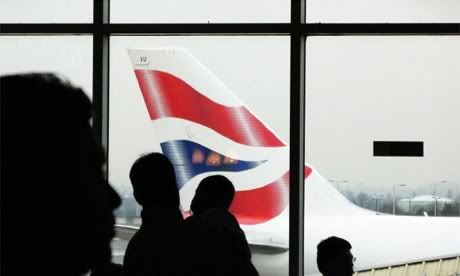‘Dirty Tricks’ Campaign: Corporate Transparency and Social Media
This post was written by regular contributor Chevis English.

If Twitter would have been up and running 17 years ago, then ‘Dirty Tricks’ would have been a trending topic for sure. I am somewhat obsessed with CNBC Originals and I happened to watch one the other day on Richard Branson. I had never heard of British Airways’ ‘Dirty Tricks’ campaign, but after learning about it, I immediately thought - people would be all over this story today via social media.
For those who aren’t familiar with the ‘Dirty Tricks’ campaign, let me fill you in. In 1990, British Airways (BA) launched a secret campaign with a select number of employees they called ‘Helpliners’ to hack into Virgin Atlantic’s computer system in order to steal Virgin’s passengers. BA ‘Helpliners’ went as far as to call Virgin’s passengers at their homes and hotel rooms to tell them that their flight was cancelled, which was a lie, and that they should re-book their flight on BA. This went on for months before Richard Branson, founder of Virgin Atlantic, started to realize what was going on. To make a long story short, two airlines were forced out of business for lack of funds to go up against BA, and if Branson hadn’t sold Virgin Records for $1 billion then he would not have had the money to put up a fight either. In turn, Virgin Atlantic would have tanked.
Upon hearing this I was appalled to learn that BA got away with such a thing and that they didn’t have to pay more than they did. In my opinion, if a company were to do something like this today, the social media backlash would be so bad that the business that wronged another would struggle for months to come (Not to mention the mainstream media’s backlash!) Corporate Transparency is very important in today’s world, and I think that any company that is not willing to be honest about their practices must have something to hide, which poses the thought – if it is too bad to share with all of your employees and customers then maybe you shouldn’t be doing it at all.
What do you think would have happened to British Airways if this happened today? What kinds of corporate transparency should businesses practice on social mediums?
*Photo copyright of bbc.com.
Tags: chevis english, contributor, corporate responsibility, transparency
-
kennethlim
-
chevis
-
Giannii
-
Colby Gergen







